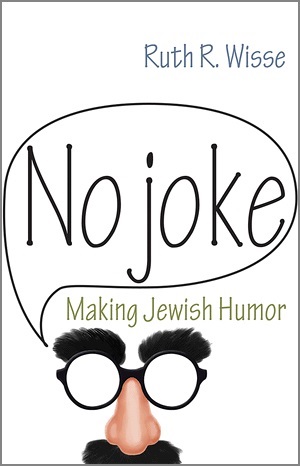Spinoza's Ethica valt onder "Laughing & Complaining"
Het Amerikaanse joodse Magazine Tablet kwam met een lijst van 101 Great Jewish Books - a catalog of the works that shape the Jewish Mind in America today. Ingedeeld in zeven rubrieken. [Cf.]
De rubrieken zijn:
Appetites, Authenticity & Experimentation, Laughing & Complaining, The Jew in the World, The Old Country, Suffering & Loss, What is Judaism?
In de rubriek "Laughing & Complaining" is Spinoza's Ethics ondergebracht. Waarom staat Spinoza daar tussen dit lijstje:
Herzog, Saul Bellow (1964)
The Feminine Mystique, Betty Friedan (1963)
Auto-Emancipation, Leo Pinsker (1882)
Without Feathers, Woody Allen (1975)
Das Kapital, Karl Marx (1867)
Adam Resurrected, Yoram Kaniuk (1971)
The Anxiety of Influence, Harold Bloom (1973)
Ethics, Baruch Spinoza (1677)
Catch-22, Joseph Heller (1961)
Philosophical Investigations, Ludwig Wittgenstein (1953)
Breakdown and Bereavement, Joseph Haim Brenner (1920)
The Street of Crocodiles, Bruno Schulz (1934)
Hungry Hearts, Anzia Yezierska (1920)
Een gezelschapsspelletje zou kunnen zijn: te raden naar wat er in het hoofd van de opstellers van de lijst omging. Ik vermoed dat het om een specimen gaat van de befaamde joodse humor.
Uit de toelichting:
What we
wanted to create was a library of works that have actually moved us
and shaped the way we understand ourselves as Jewish human beings in
the world. We read some of these books as children; some we read
under our covers as teenagers; some we got off college syllabi; some
we discovered, with wonder and awe and surprise, as adults. But all
are books of supreme importance in shaping our lives and our
understanding of the different ways one might be a Jew in the
world—whether the authors are religious Jews, or secular Jews, or
not Jewish by your definition or someone else’s definition, or by
any definition at all.
When it came to organizing the list, we
thought about what these books meant to us and soon came up with the
metaphor of the human mind. Just as each one of the brain’s
individual lobes is useless except as a part of the grander whole,
these categories, too, are meant to serve not as hard barriers but
rather as points of connection and contemplation. More than a few
decisions here will raise eyebrows—why, for example, is Portnoy’s
Complaint filed not under the Laughing & Complaining category but
under Appetites? Why is Anne Frank’s Diary of a Young Girl not in
Suffering & Loss? The answer in all cases is that we tried to
place each book according to what felt for us to be its most
generative material. Some of you, we know, will disagree, and others
will question the very categories themselves. That, we think, is
exactly the point of putting out lists. [Cf.]
Met dank aan Michiel Wielema die mij hierop attendeerde.
Stan Verdult



